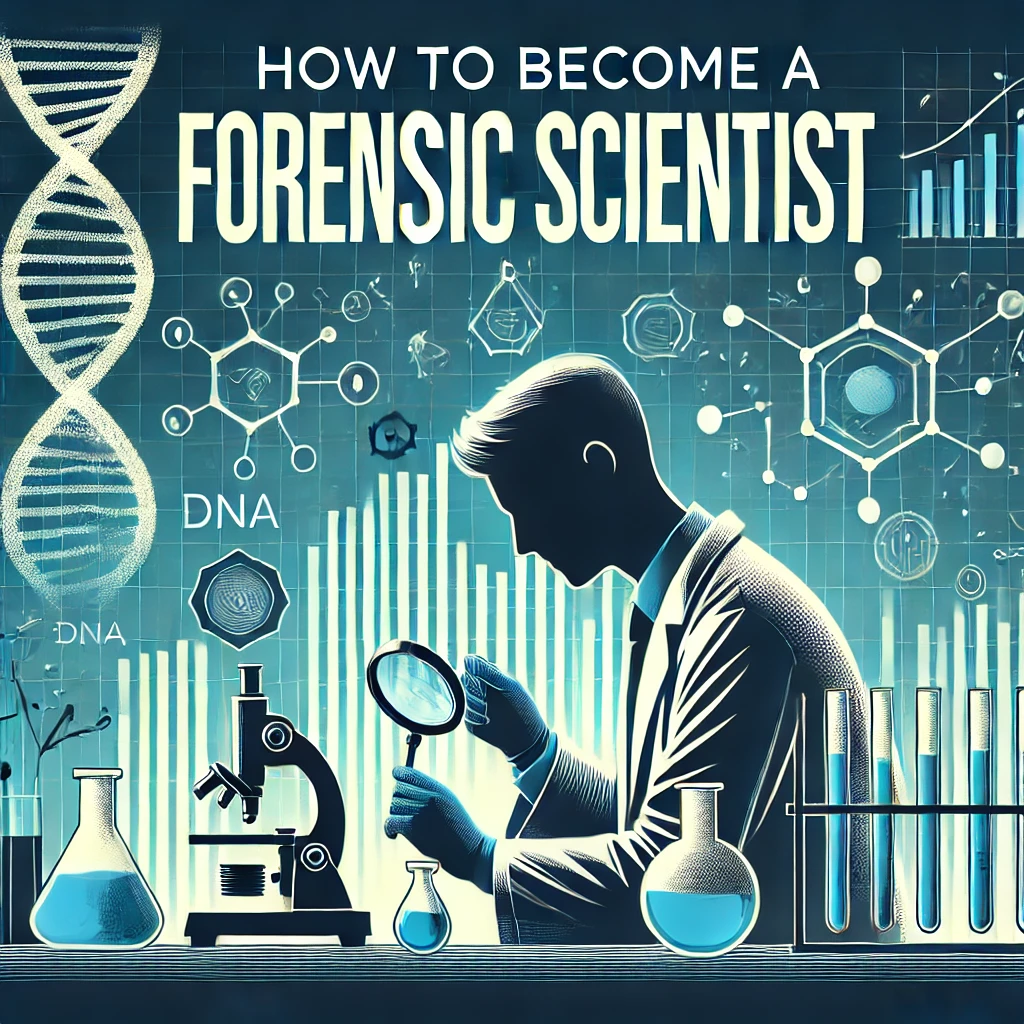The Forensic Science is an exciting field in which science meets with crime-solving. Forensic scientists analyze the evidences that are found from crime scenes that help to applicate law for solving cases. If you are interested in such a carrier where science works together with justice, here is a complete guide on how you can become a forensic scientist. This article will help you to know about forensic science more clearly.
Understand What Forensic Scientists Do
Forensic scientists play an important role in investigating the crime scenes. Their tasks most typically include:
Crime Scene Investigation: The forensic scientistsfirstly collect all the evidences like fingerprints, DNA, weapons or any document that seems suspicious from the crime scene.
Lab Analysis: Then, they examine these evidences in a lab to determine how it is related to the crime scene and what it reveals about the situation.
Testifying in Court: After this, they explain their findings to the judges or the inspectors.
Get the Right Education
A. Earn a Bachelor’s Degree:
Most of the forensic scientists start with a bachelor’s degree in the following fields like:
Forensic Science: This subject teaches you the essentials that are required for the crime scene work and for lab analysis.
Biology or Chemistry: A solid foundation of these subjects is important for better understanding during evidence analysis.
Criminal Justice: This study provides the context about the legal system and procedures.
B. Consider Advanced Degrees
A Bachelor’s degree is the starting point while a Master’s degree can offer more opportunities and will allow you for further specializing in this field like forensic pathology and toxicology.
Gain Practical Experience
A. Internships and Volunteer Work
Experiences of real world are important. You can always look for internship opportunities and volunteer positions at:
Crime Labs: Many labs offer internship opportunities for students to help them in the learning process.
Police Departments: The assisting officers can give you hands-on experience with crime scene investigations.
B. Entry-Level Jobs
Starting in related positions can be beneficial, such as:
Forensic laboratory technicians: assist forensic scientists in processing and analyzing the evidence. This role is an excellent stepping stone for anyone who wants more specialized roles.
Crime scene technicians: crimes scene investigators are responsible for evidence collection and documentation. They work at crime scenes which helps in gaining practical experience in evidence handling
Evidence Technician: This role focuses on managing evidence, maintaining chain of custody records, and organizing the storage and transportation of evidence. Evidence technicians ensure that evidence remains uncontaminated and properly cataloged.
Forensic Science Research Assistant: For those interested in the research side of forensic science, entry-level positions as research assistants allow them to participate in forensic studies, data collection, and lab experiments, often within academic or private research institutions.

Develop Key Skills
Forensic scientists need a variety of skills, including:
Analytical Thinking: Being able to analyze data critically and objectively.
Attention to Detail: Small details can make a big difference in investigations.
Communication Skills: You must clearly explain your findings in writing and verbally, especially in court.
Technical Skills: Familiarity with lab equipment and scientific techniques is important.
Certification in forensic science
Forensic scientists who seek specific skillsets or want to demonstrate expertise in a particular forensic field may pursue professional certifications. Certifications can significantly enhance credibility and often align with specific career goals. Common forensic science certifications include:
American Board of Criminalistics (ABC): Offers certification in criminalistics, with options for specializations in fields such as trace evidence or DNA analysis. This certification is valuable for forensic scientists in labs focusing on evidence examination.
International Association for Identification (IAI): Provides certifications in areas like latent fingerprint examination, crime scene investigation, and forensic photography, which are crucial for those who work directly with crime scenes.
American Board of Forensic Toxicology (ABFT): Certification for forensic toxicologists who analyze toxic substances in the human body, often in cases involving drug overdoses or poisoning.
Digital Forensics Certifications: For those interested in digital forensics, certifications like Certified Computer Examiner (CCE) or Certified Forensic Computer Examiner (CFCE) help validate skills in digital evidence collection, data recovery, and cyber investigation.
Stay Updated
Forensic science is always changing. Keep learning by:
Attending Workshops and Conferences: These events can help you learn about new developments in the field.
Joining Professional Organizations: Groups like the American Academy of Forensic Sciences (AAFS) offer resources and networking opportunities.
Explore Job Opportunities
Forensic scientists can find work in various places, including:
Government Crime Labs: Many work for local, state, or federal law enforcement.
Private Labs: Some forensic scientists are employed by private labs that assist law enforcement.
Consulting: Experienced scientists may work as consultants for legal cases.
Consider Specialization
As you gain experience, you might choose to specialize in areas such as:
Forensic Biology: Focused on analyzing biological evidence like DNA.
Forensic Chemistry: Concentrating on substances like drugs and toxins.
Forensic Anthropology: Studying human remains to help identify individuals.
Conclusion
The journey to becoming a forensic scientist involves several steps which includes obtaining the educational qualifications, gaining work experience, specializing in a specific area, and securing certification and licensure. Forensic scientists should aim for a bachelor’s degree in a relevant field, such as forensic science, biology, or chemistry, from an accredited program. This academic background not only equips individuals with the fundamental knowledge and skills needed to analyze evidence and conduct scientific investigations but also enhances their credibility in a field that demands precision and expertise. Each specialization plays a unique role in criminal investigations, and having a deep understanding of specific techniques and methodologies. By following the outlined steps an aspiring forensic scientists can pave the way for a successful career dedicated to making a difference in the world.
Frequently Asked Questions (FAQs)
What education do I need to become a forensic scientist?
o become a forensic scientist, you typically need at least a bachelor’s degree in forensic science, biology, chemistry, or a related field. Some positions may require advanced degrees, such as a master’s or Ph.D.
What is the work environment like forensic scientists?
Forensic scientists can work in labs, offices, and sometimes at crime scenes. The work can involve long hours, especially during busy periods or when dealing with high-profile cases.
What is the typical salary for a forensic scientist?
Salaries can vary widely based on experience, location, and specialization. On average, forensic scientists in the U.S. earn between $50,000 and $80,000 per year, with potential for higher earnings in specialized roles or management positions.
Are there specific courses I should take?
Yes, relevant courses include criminalistics, toxicology, forensic biology, chemistry, and criminal justice. Labs and hands-on courses are particularly valuable.
Do I need any certifications?
While not always mandatory, certifications can enhance your job prospects. Common certifications include the Certified Criminalistics Specialist (CCS) and Forensic Science Certification from recognized boards.
Found this helpful? Don’t miss out on our other great articles!



